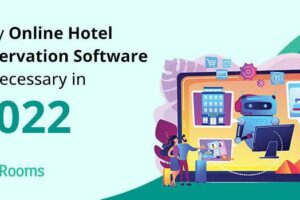Digital Marketing Insights & Best Practices for Travel Technology
Technology has greatly changed the way we travel. With the rise of social media, people have become inspired to travel more. In fact, the World Tourism Organization estimates that by 2030, 8.5 billion people will be traveling across the globe. Technology doesn’t just make traveling easy. It also makes traveling a lot cheaper. With just one tap on their smartphones, travelers can explore amazing destinations, find the best hotels, compare rates, shop around for amazing deals, book activities, and travel in the way that suits their lifestyle. Travel technology has also benefited businesses in the hospitality industry. Digital marketing, in particular, enabled hotels to reach potential customers in various parts of the world. Through platforms like social media and email, hotel marketers can promote their business, create brand awareness, and generate more leads.
However, technology has also presented several challenges to businesses in the tourism and hospitality sectors. Because the online world has given travelers numerous options, it can be difficult for a hotel to find customers and keep up with the competition if they don’t leverage travel technology enough.
Digital Marketing & Travel Industry: Trends & Insights
Digital marketing helps businesses in the travel industry in many ways. Among its major benefits are greater customer engagement, exposure on search engine results, real-time data optimization, and personalized experience.
Customer Engagement
Digital marketing has made it much easier for businesses to connect with their audience and keep them engaged. Social media platforms, in particular, are great places to raise brand awareness and tell potential guests about the great experiences that await them if they book your hotel. Additionally, you can leverage digital marketing to identify their wants and needs, engage with them during the duration of their stay, and stay in touch long after they have left.
Search Engine Optimization
Research reveals that 96% of leisure travelers use the internet to start their hotel planning. The right marketing approach can make it easier for travelers to find you amidst the hundreds of businesses in your location. Gone are the days when people rely on agencies or airline companies to find a hotel. Today, travelers make use of Google, Yahoo or Bing to search for local businesses, in addition to social networking sites.
Experiential Marketing
More and more people are trading expensive cars and gadgets over a week-long vacation by the beach or an adventure in the African safari. Platforms like YouTube and Instagram let you showcase your hotel amenities and the experiences that guests are bound to uncover. Additionally, VR technology gives potential guests an opportunity to explore a hotel before they decide to book. It’s an entirely different experience of being there without actually setting their foot on your hotel.
Best Digital Marketing Practices for Travel Technology
Employ marketing automation.
There are many reasons why marketing automation is essential in travel technology. The concept of automation involves the ability to send promotional content to individual users without much human intervention. Thankfully, all-in-one marketing platforms like Adrack provide hospitality marketers with tools to easily manage their online campaigns and measure results.
Use data to provide personalized travel experience.
The demand for personalization in the travel industry has never been this high. Travelers are looking for unique ways to experience each place they visit. From booking flights and hotels to selecting activities and destinations to see, each traveler has different needs and wants. And since more and more people are using online travel services, it’s not difficult for tourism and hospitality businesses to provide a personalized experience. By using customer data such as demographics, location, booking and purchasing behaviors, companies can make the customer journey smoother and easier.
Use all aspects of social media.
Needless to say, social media has a profound impact on travel and tourism. One in five people uses social media when researching and planning their trips. On Facebook alone, 50% of users “like” pages related to travel. What’s more, travelers remain plugged to their social media throughout their trip. This makes social platforms a great place to promote travel brands, especially hotels.
The first step to a successful social media marketing campaign is to establish a basic strategy. This includes identifying platforms where you can promote your business the most and establishing clear and measurable goals. Content quality is also very important. High-quality images, videos, and other creative visuals are great ways to showcase customer experience and attract guests.
Implement search engine optimization.
You need people to find you easily. And to do that you need to appear on the first page of Google. Search engine optimization is such a complex process. But it can be achieved in many simple ways. One is to make sure that you have a fully functional website that meets Google’s SEO requirements. Another way is to publish high-quality content that provides value to your audience. You can also leverage paid advertising to promote your hotel online. Examples are Google Ads and Facebook advertising.
Technology has truly revolutionized the way people travel. Not only does it make traveling affordable and convenient, but it also makes every traveler’s experience unique and positive.
Online marketing can help you find customers and keep them engaged, and most importantly – personalize their travel experience. By taking into consideration the digital marketing insights and best practices mentioned above, you can create a much better experience for your travel customers and grow your brand.




